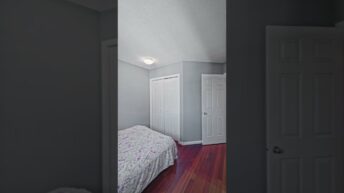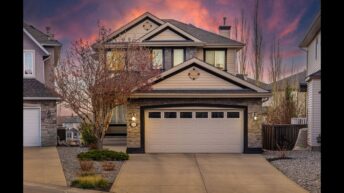So far in this series we’ve covered Wants, Needs and How Much You can Afford. And today we’ll go over How you evaluate homes.
One of the biggest mistakes people make when buying homes is they rely solely on “local neighborhood market analysis information” to determine the price they want to offer.
As a first step you should consider the “total market overview” of exactly what is going on in the ENTIRE market. Then narrow your analysis to local market information.
Why do I say this? Because you want to know two things: 1) What is the ENTIRE market doing with values? Are they going up? And by how much? 2) What is the specific area doing with market values? How does it compare to what the total market is doing? Are the growth rates the same, lower, or higher than the overall market?
Understanding these stats will save you thousands of dollars when you make an offer on a home. I always perform both of these analyses for my buyers, in an easy to understand format, so you know EXACTLY what you’re buying! And if you want help with that make sure to head over to planwithmike.ca and schedule a discovery call.
OK, so let’s say you’re now pre-qualified with financing, and you’ve also found a number of homes to preview.
It’s now time to find not only a home that fits your needs, but a home that will be a good investment. What are some of the things you should look for?
Well, the first thing I always look for and the obvious one is “location”. But not from the sense you’re thinking as there’s 3 areas I consider: General Location, Lot Location, and Home Location.
The general location of the home you’re considering could determine how happy you’ll be living there, and what kind of an investment you’re buying. Here’s an important tip that will almost always make you money…
Never buy the top of the market home on that street, Buy The Midrange Home on the best street you can afford.
The home will “generally” appreciate faster and greater than a higher priced home in the same area.
Plus, you will most certainly spend money over time updating or decorating your new home, and you don’t want to get “upside down” on your value after spending money for improvements. So remember…
NEVER Buy The Top Of The Market Home!
Now the second area you need to consider is Lot location and it has to do with WHERE your particular lot is located in the subdivision you’re considering.
Is it near a common area? Does it capture better views than other lots in the area? Is it more private, or shaped better than other lots? Is it near a loud street?
Finally, you want to look at the Home location. How well did the builder take advantage of all the amenities the LOT offers a home? Are the views great? How’s the curb appeal? Is there a balance between front and back yards? Do you see any drainage problems because of where the home has been located on the lot?
Think through these things as you visit the home you’re considering to buy.
Couple quick other things you want to keep in mind…
1. What is your initial reaction of the home as you approach it from the street? Does it have great Curb Appeal? Notice the areas around the home? Are they well maintained? Is the landscaping groomed?
2. Take a look at the structure of the home? windows and doors should be square, and they should close correctly. Look around windows and doors for cracks. Check corners of rooms for sloping or tile/wood cracks. These may reveal foundation or water problems.
3. Now think about the floor plan of the home. Is it functional? Do the common areas flow the way you want them to? Are the halls narrow and long, or are they open? How far will you have to carry the groceries from the garage? Are the rooms the right size and height for your desires? If there have been any additions, were they done professionally? Do they fit with the flow and style of the home?
4. Now, check the roof and ceilings. Is the roof the type you prefer? Is it in good condition? When was the last time the home was roofed?
5. Now make a basic check of the plumbing, mechanical, and electrical systems. Do drains and toilets work correctly? Is the property connected to sewer, or will you have to deal with a septic system? Is the electrical wiring up to code? And are the mechanical systems working properly? And Always make sure you get these systems inspected by a licensed contractor or inspector BEFORE you close any deals.
Now, if you’re starting out on the journey of buying this year and you need help or have some questions the good news is – I don’t charge for phone calls so head over to planwithmike and schedule your call and make sure to watch for the next video and I’ll chat with you soon.






Add comment